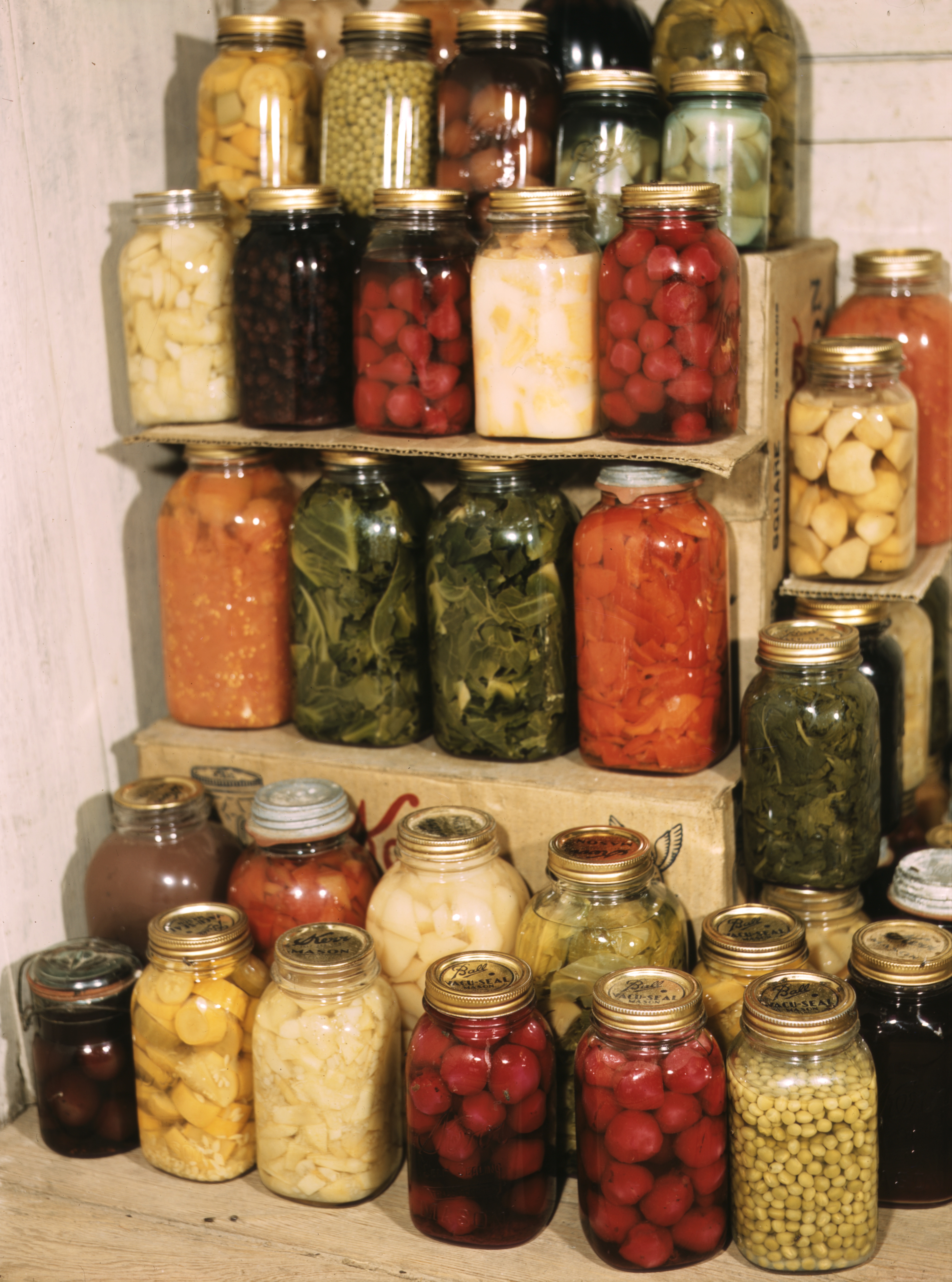|
Ball Jar
A Mason jar, also known as a canning jar, preserves jar or fruit jar, is a glass jar used in home canning to preserve food. It was named after American tinsmith John Landis Mason, who patented it in 1858. The jar's mouth has a screw thread on its outer perimeter to accept a metal ring or "band". The band, when screwed down, presses a separate stamped steel disc-shaped lid against the jar's rim. After Mason's patent expired, numerous other companies began manufacturing similar jars. Over the years, the brand name ''Mason'' became the genericized trademark for that style of glass home canning jar, and the word "Mason" can be seen on many Ball and Kerr brand jars. The style of jar is occasionally referred to by common brand names such as Ball jar (in the eastern US) or Kerr jar (in the western US) even if the individual jar is not that brand. In early 20th-century United States, Mason jars became useful to those who lived in areas with short growing seasons. The jars became an es ... [...More Info...] [...Related Items...] OR: [Wikipedia] [Google] [Baidu] |
Kilner Jar
A Kilner jar is a rubber-sealed, glass jar used for preserving ( bottling) food. It was first produced in 1900 by John Kilner & Co., Yorkshire, England. History The Kilner Jar was originally invented by John Kilner (1792–1857) and associates, and manufactured by the Kilner glass bottlemakers company from Yorkshire, which he set up. The original Kilner bottlemakers operated from 1842, when the company was first founded, until 1937, when the company went into liquidation. In 2003, The Rayware Group purchased the Ravenhead name and continues to produce them today in China. Image:Kilner 1928 closed.jpg, A Kilner jar from no later than 1928 Image:Kilner 1928 open.jpg, The open jar Company names The various names of the Kilner companies were: * John Kilner and Co, Castleford, Yorkshire, 1842–1844 * John Kilner and Sons, Wakefield, Yorkshire, 1847–1857 * Kilner Brothers Glass Co, Thornhill Lees, Yorkshire, 1857–1873 also at Conisbrough, Yorkshire, 1863–1873 * Ki ... [...More Info...] [...Related Items...] OR: [Wikipedia] [Google] [Baidu] |
Fowler's Vacola
The Fowler's Vacola jar is a molded glass jar used in canning for food preservation. It is the most popular home canning system in Australia. History The system was developed in 1915 in Melbourne, Australia, by Joseph Fowler (28 February 1888 – 24 April 1972), who migrated from England in 1912, at his home in Hawthorn, Victoria, and became very popular. The jar The Fowler's Vacola system uses glass jars, single use rubber ring seals and pressed metal lids, much like American Mason jars first patented in 1858, except that the jars and lids are not threaded. During the canning process, while still hot (and presumably Sterilization (microbiology), sterile), the lids are secured by metal tension clips which are removed once cooled and a vacuum seal has formed. Other equipment marketed by the company included a large electrically heated waterbath and "sterilizing thermometer", a glass thermometer mounted on a concave stainless steel backing, graduated in both degrees Celsius and F ... [...More Info...] [...Related Items...] OR: [Wikipedia] [Google] [Baidu] |
Canning
Canning is a method of food preservation in which food is processed and sealed in an airtight container (jars like Mason jars, and steel and tin cans). Canning provides a shelf life that typically ranges from one to five years, although under specific circumstances, it can be much longer. A freeze-dried canned product, such as canned dried lentils, could last as long as 30 years in an edible state. In 1974, samples of canned food from the wreck of the ''Bertrand (steamboat), Bertrand'', a steamboat that sank in the Missouri River in 1865, were tested by the National Food Processors Association. Although appearance, smell, and vitamin content had deteriorated, there was no trace of microbial growth and the 109-year-old food was determined to be still safe to eat. History and development French origins Shortly before the Napoleonic Wars, the French government offered a hefty cash award of 12,000 francs to any inventor who could devise a cheap and effective method of preser ... [...More Info...] [...Related Items...] OR: [Wikipedia] [Google] [Baidu] |


